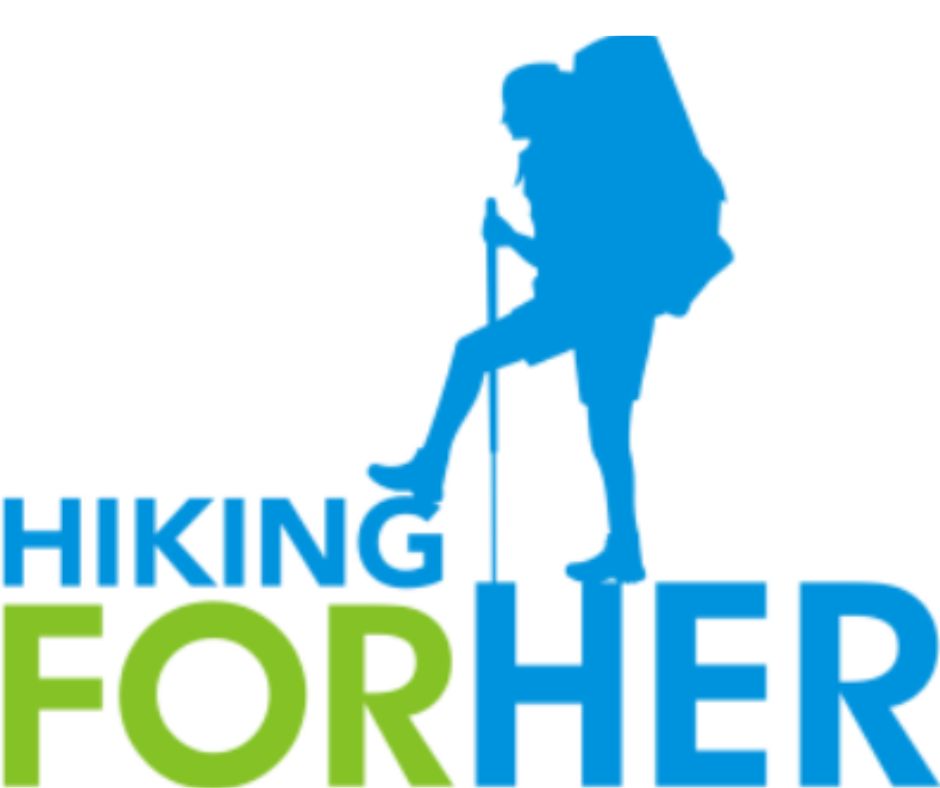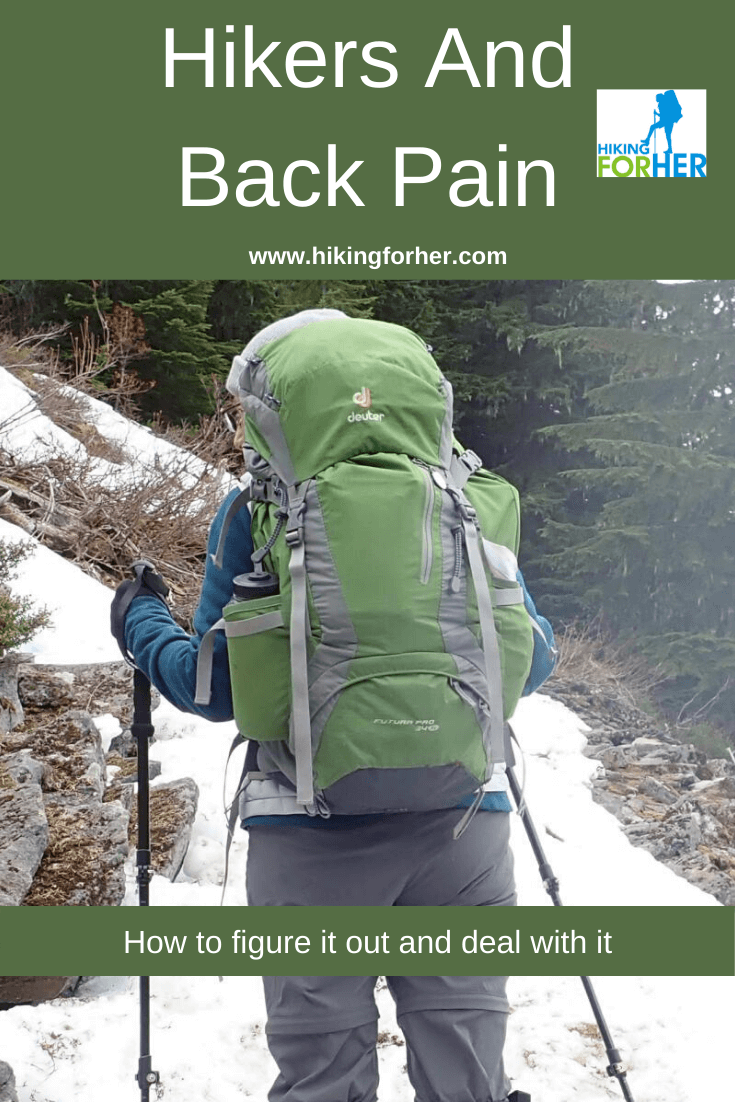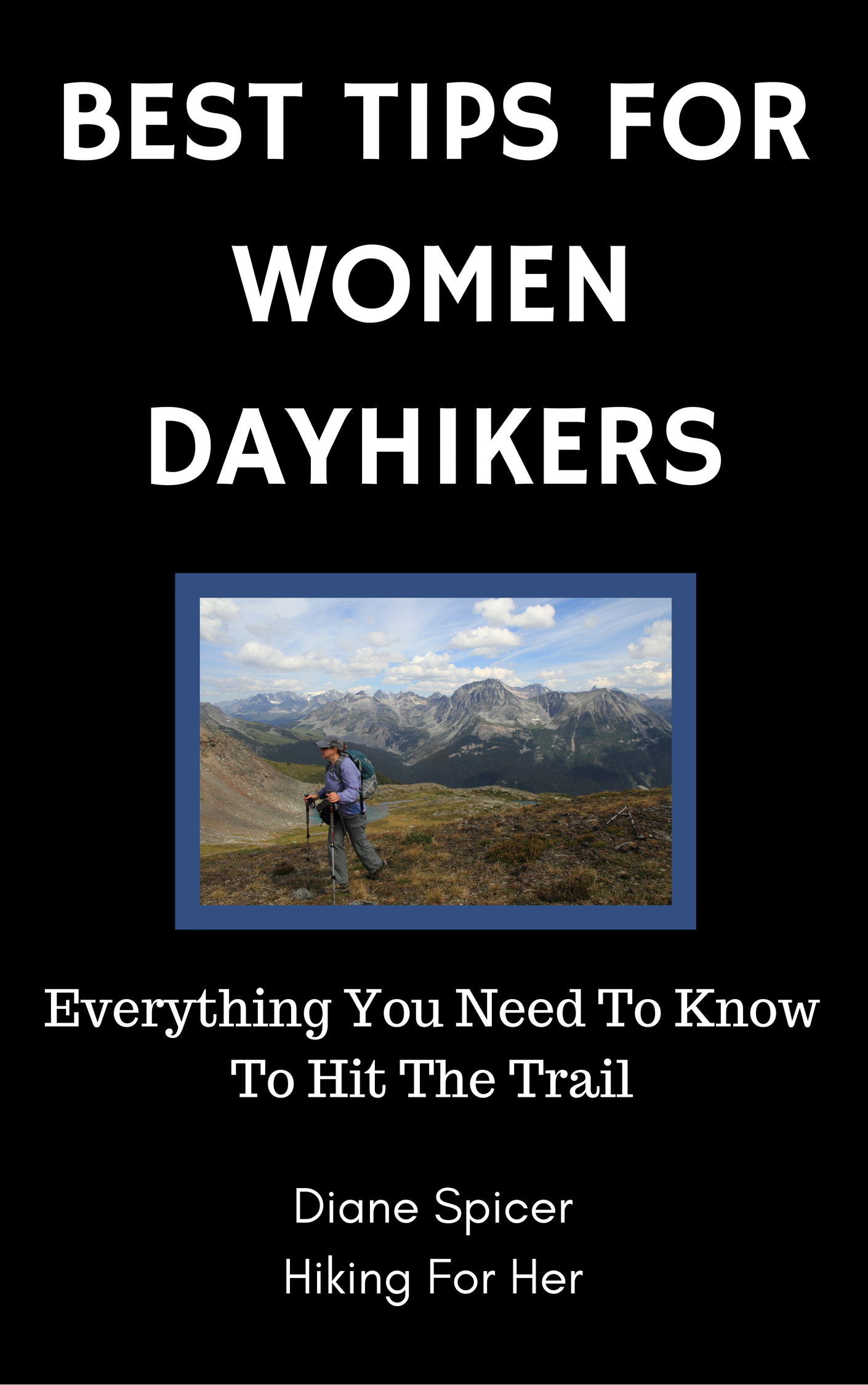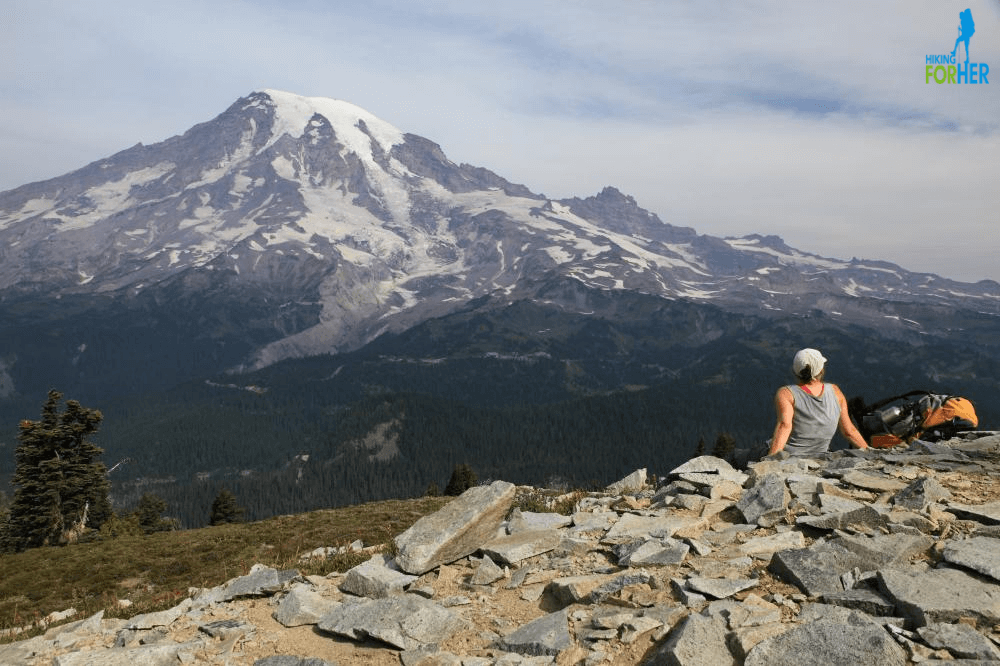Reduce Your
Hiking Back Pain
By Diane Spicer
Hiking back pain: a hot (as in "ouch") topic!
I receive many types of questions about hiking pain.
So I know that you're here because back pain is a common problem for hikers.
To take you through how to see where your back pain might be originating, let me share my response to one hiker's question about post-hiking pain in the upper back and neck.
To set the scene:
- He works a desk job.
- He lifts weights during the week and feels reasonably fit.
- He's really bugged by back pain after each hike.
We're going to use a "rule in/rule out" approach to uncover several reasons for hiking back pain.
None of this is medical advice, just things to consider as you think about hiking back pain.
Not interested in figuring out what's going on?
Jump to tips for back pain relief for hikers
Hiking back pain:
what's causing it?
First principles!
My response to this hiker started like this:
Howdy! Back pain sucks, that's for sure.
My first thought would be in regards to your choice of backpack.
If your pack doesn't distribute the weight appropriately between your sternum (breast bone) and your pelvic area, then it's going to show up in your neck muscles and the rhomboids (between your scapulae, or shoulder blades).
It will also cause your deep spinal muscles to complain (ever notice how "pain" is in that word?).
Take a look at this for some tips on how to get a good fit from your current backpack.
Can you borrow or rent another pack, to test out this theory?
Or consider buying a better backpack, using these tips for how to shop for the right one for your body.
Back pain:
posture matters to a hiker
Another question:
- How do you hold your head while hiking?
A desk job could be training your neck muscles to crane forward (computer work, reading, etc.), and you automatically use that same pattern on the trail.
This puts strain on your neck and upper back muscles.
Your head is as heavy as a bowling ball, and your hard working neck and shoulder muscles will get weary if you're always tugging them out of alignment with your back.
This tends to show up more quickly when you walk, as opposed to when you sit.
- That explains why the pain gets your attention more quickly when you're away from your desk.
To avoid neck strain on the trail
Try to stay conscious about your head/neck posture next time you hike.
- Do you feel as if you're pulling your neck out of alignment with your torso?
- Do you have a trail buddy who can watch for bad posture habits and cue you when needed?
- Can you take a selfie (photo) and check your posture while wearing your pack?
- Do you already have photos of yourself that you can use to check your posture?
If you have access to a trained sports massage therapist, s/he could give you some feedback about the amount of tension in these muscles, and could recommend stretches for before & after hiking.
Then, of course, it's up to you to do them!
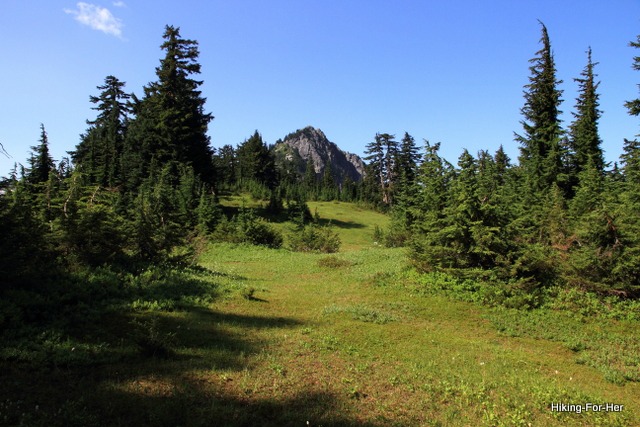 I want you out on a trail taking advantage of wandering opportunities, not hobbled by hiking back pain!
I want you out on a trail taking advantage of wandering opportunities, not hobbled by hiking back pain!
Or maybe it's over training?
One more idea: maybe your weight lifting routine needs to be re-designed.
If you're training some muscles to be stronger than others, that could give you an imbalance which shows up when you're bearing weight (as in carrying your pack).
- Do you have access to a library or any anatomy books where you can see which weight lifting moves train which muscles?
- Or maybe there's a personal trainer you could consult?
And do you stretch? Sounds lame, but it really helps to keep your muscles in top shape in conjunction with your weigh lifting.
Is your backpack
packed correctly?
On a day hike, you can get away with a backpack that is not distributing weight correctly.
But after a few of them which result in hiking back pain, you're going to want to slow down a bit and take time to do the job properly.
- These tips will help you get it right.
Footwear and its connection
to back pain
What are you wearing on your feet?
If there's a significant difference in heel height, or ankle support, between week day footwear and hiking boots, that could be throwing off your back muscles.
This can show up in lower back pain more often than upper back pain.
But pain is pain, right?
Tips for finding and using the proper hiking footwear:
Do you put on your backpack
the right way?
Yes, there is a "right way" to put on a backpack, as well as take it off.
And it involves being kind to your back.
Here's how to put on a backpack without tweaking your back, along with more tips on how to pack properly.
Any of this sound worth a try
to eliminate hiking back pain?
I hope this gives you a few ideas to explore if you suffer from hiking back pain.
Masking your back pain with self medication will get you back on the trail, but it won't uncover, and solve, the underlying problem(s).
Chronic back pain might sideline your from hiking, so it's smart to uncover its causation and experiment with ways to eliminate it from your life.
For more approaches to back pain relief on the trail and at home, including prevention, read this.
For more ideas about how to take good care of yourself:
- Check out my information on self care for hikers.
- Try some injury prevention strategies.
- Inflammation is a necessary part of a normal healing cycle, but not something you want to face after every hike.
- Try better weight distribution by using trekking poles.
Home page > Best Hiking Tips >
Reduce Hiking Back Pain
|
I get emails all the time about what I wear, eat, carry and love to use on the trail. That's
why I provide affiliate links to you: the best gear that I use myself and have seen used by other hikers is instantly
available for your consideration, and the gear company sends a few
pennies per dollar to this reader-supported hiking website. There is no added cost to you! Everyone ends up a winner: Great gear for you, strong gear companies, and more free hiking tips for everyone. Thanks very much for your support. It's warmly and sincerely appreciated. It also helps send these hiking tips to all your virtual trail buddies around the globe. |
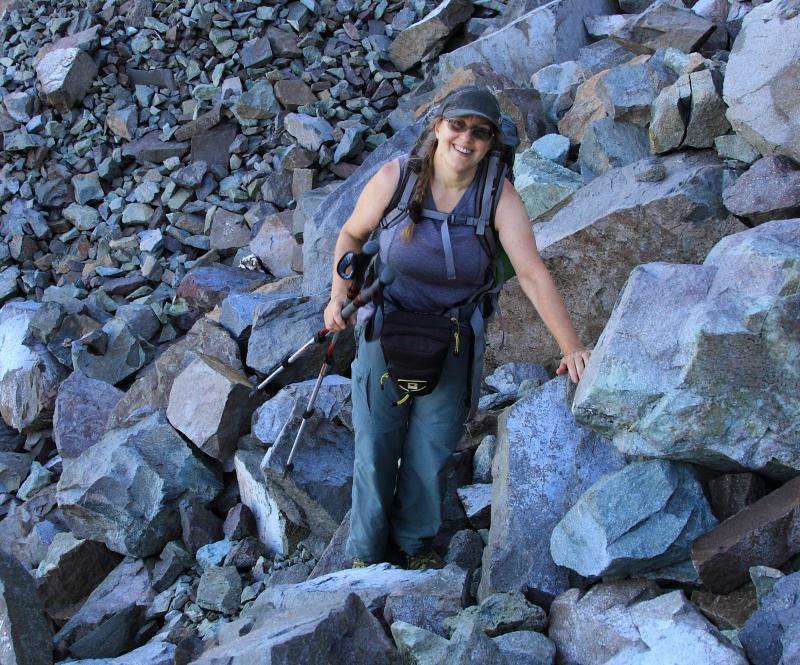 |
